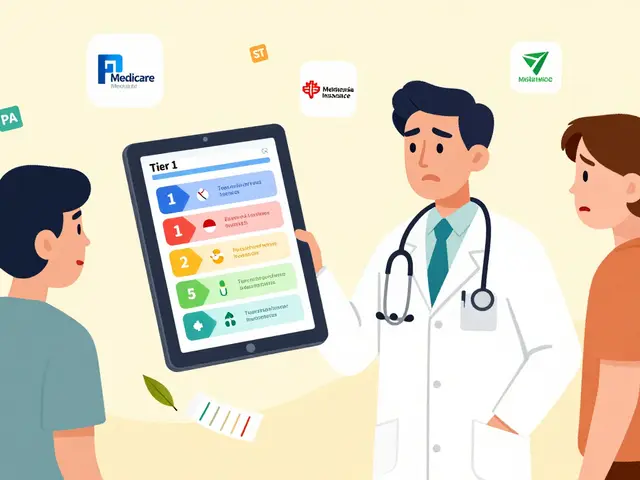UTI Treatment: What to Do When You First Notice Symptoms
Notice burning when you pee, frequent urges, or cloudy urine? Those are classic UTI signs. The fastest path to relief is a clear plan: recognize symptoms, get tested if needed, use the right medicine, and take simple steps at home to ease discomfort while you recover.
When to see a doctor — urgent vs. routine
If you only have mild burning and no fever, some clinics will confirm a UTI with a urine dipstick or send you a urine culture and prescribe antibiotics. But call or seek care right away if you have fever, chills, flank pain, nausea or vomiting, blood in urine, are pregnant, or are a man — these can mean a more serious kidney infection or other issue.
For older adults or anyone with a urinary catheter, get medical advice sooner. Don’t try to manage these cases at home.
Treatment options and what actually helps
Antibiotics cure most uncomplicated UTIs in women. Common first-line choices your doctor may prescribe include nitrofurantoin, trimethoprim-sulfamethoxazole, or fosfomycin. The exact drug and duration depend on local resistance patterns, allergies, and whether the infection is complicated. Always follow the prescription and finish the full course unless your doctor tells you otherwise.
Over-the-counter phenazopyridine can numb urinary pain for a day or two, but it only eases symptoms and can turn urine orange. Use it short-term and check with a pharmacist if you have kidney disease. For pain, acetaminophen or ibuprofen often help.
Hydration matters. Drinking water and urinating regularly helps flush bacteria. That doesn’t replace antibiotics, but it supports recovery. Avoid heavy alcohol and caffeine while you’re symptomatic — they can irritate the bladder.
Home remedies: cranberry products show modest benefit at preventing repeat infections for some women, especially when used long term. Probiotics with Lactobacillus may help restore vaginal flora after antibiotics, which can lower recurrence for some people. These are supportive measures, not substitutes for antibiotics when you have an active infection.
Prevention tips that work: wipe front to back, urinate after sex, avoid spermicide if you get frequent UTIs, wear breathable cotton underwear, and stay well hydrated. If you get recurrent UTIs, your clinician may discuss low-dose preventive antibiotics, post-coital antibiotics, or further tests like urine culture or imaging.
Final practical note: don’t self-prescribe leftover antibiotics or buy unverified meds online. A proper urine test and a short conversation with a clinician will pick the right drug and keep you safer. If symptoms get worse or don’t improve within 48–72 hours of starting treatment, return to care for a re-check.
Levofloxacin is a well-known antibiotic, but it's not the only option when treating infections. This article highlights six alternatives, detailing their uses, advantages, and drawbacks. Whether it's tackling urinary tract infections or other bacterial issues, these alternatives offer varied benefits. Explore how each one works, their pros and cons, and how they compare, so you can make informed decisions in healthcare.
View Details
